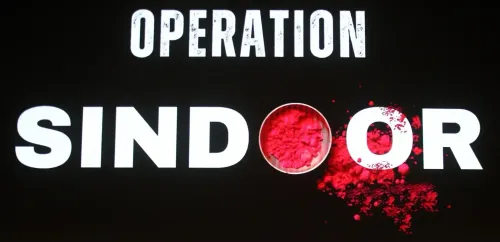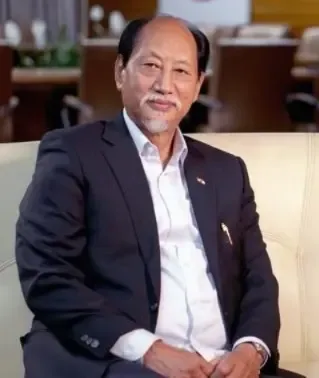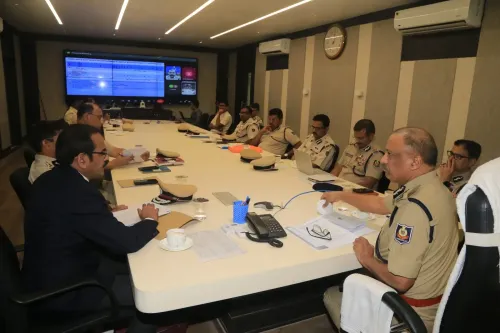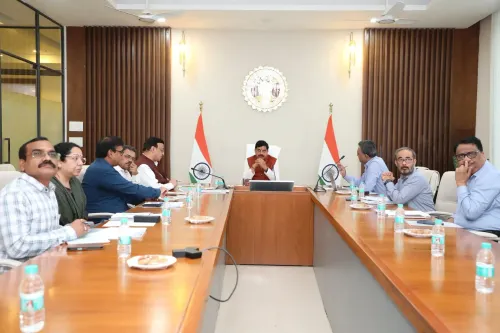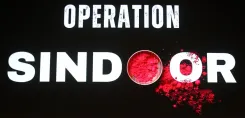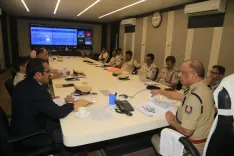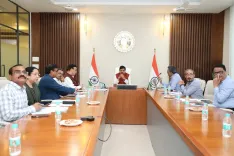How is CM Stalin Addressing the Heavy Rain Crisis in TN?
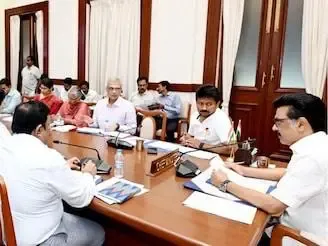
Synopsis
Key Takeaways
- Proactive measures: CM Stalin's meeting with district officials emphasizes the importance of timely interventions.
- Evacuations: Residents in vulnerable areas are being relocated to safe shelters.
- Resource mobilization: Essential equipment is on standby for emergencies.
- Paddy protection: Efforts to safeguard harvested crops are a priority.
- Inter-departmental coordination: Collaboration is crucial for effective disaster response.
Chennai, Oct 21 (NationPress) As the northeast monsoon gains momentum, unleashing widespread rains across various districts, Tamil Nadu's Chief Minister M.K. Stalin convened a crucial video conference with District Collectors from Chennai, Tiruvallur, Kancheepuram, Chengalpattu, Mayiladuthurai, Nagapattinam, Tiruvarur, and Thanjavur on Tuesday. The aim was to evaluate the current relief measures and the overall preparedness for the monsoon.
During this meeting, the Chief Minister urged officials to enhance precautionary and rescue operations in areas prone to flooding and low-lying regions.
He emphasized the need for district administrations to evacuate residents from coastal and flood-risk zones to safe shelters, ensuring that essential supplies like food, clean drinking water, and medical assistance are readily available at relief camps.
Officials informed Stalin that a cumulative rainfall of 56.61 mm had been recorded in the districts under review. They confirmed that all essential equipment, including JCBs, motor pumps, boats, power saws, and transport vehicles, were on standby to tackle any emergencies arising from the heavy rainfall.
The power infrastructure, which consists of 51,639 electric poles, 1,849 transformers, and 1,187 conductors, was reported to be secure and prepared for quick restoration in case of disruptions.
Stalin also assessed the paddy procurement operations in the delta districts, highlighting the necessity of uninterrupted collection and transportation despite adverse weather conditions.
He instructed officials to safeguard harvested paddy from moisture damage and expedite its movement from procurement centers to warehouses.
The Chief Minister revealed that the state government had suggested that the Centre relax the permissible moisture content in paddy from 17 percent to 22 percent to alleviate the burden on farmers affected by the monsoon, urging swift approval from authorities.
Stalin reiterated that “no effort should be spared” in safeguarding lives and livelihoods, stressing the importance of close collaboration among departments to effectively mitigate the monsoon's impact.
Deputy Chief Minister Udhayanidhi Stalin, Chief Secretary N. Muruganandam, and senior officials from the Revenue, Disaster Management, Electricity, and Public Works departments participated in the meeting.

